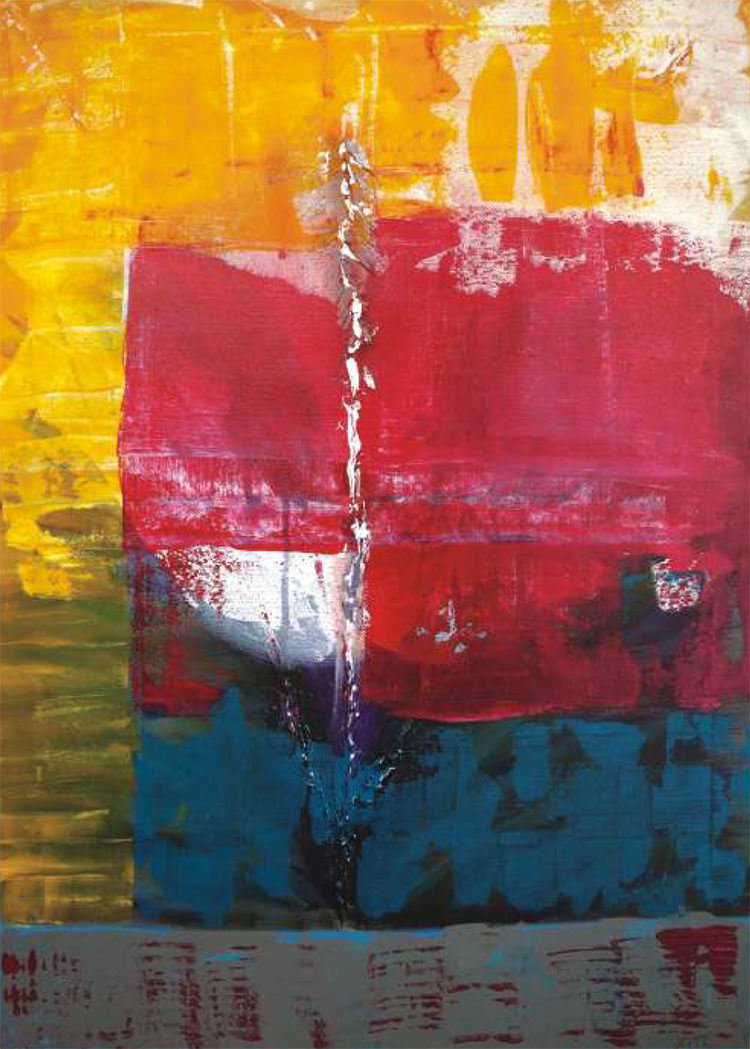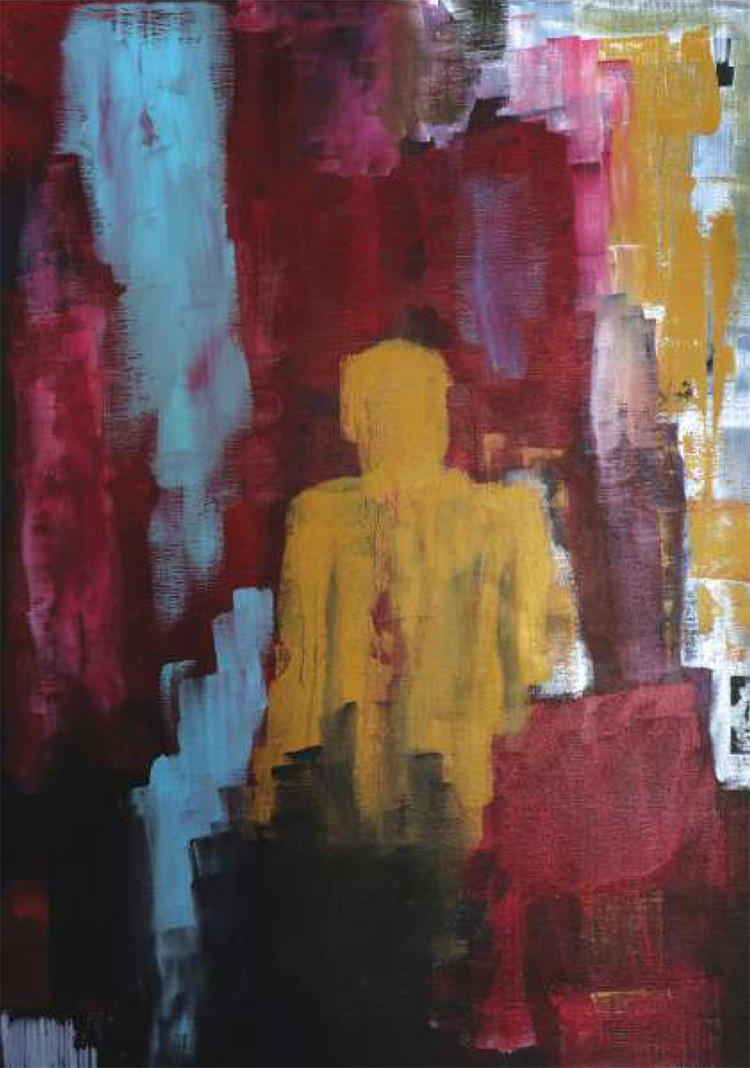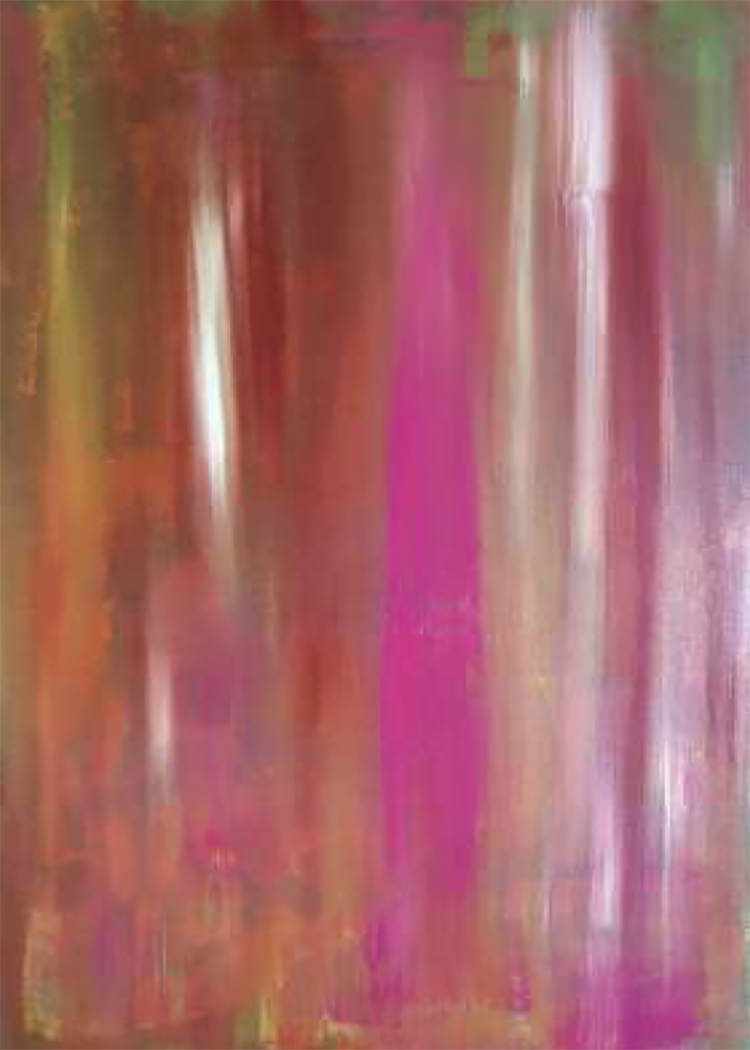George Douatzis
Giorgos Douatzis is a great man of art, poet, writer and visual artist. Through his multifaceted literary work, he has made a huge contribution to Greek literature.
He had said "Real life is not in transactions, in the pursuit of money, in the vanity of self-interested competitions. It is in the search for the humanity in you and in the concern for the neighbor. And poetry is the great teacher."
Poetry flourishing, sonorous, stormy. Who raises it in his hands sometimes as a flag and sometimes as a weapon - and always - as a human offering.
Tasos Livaditis (1976)
Douatzis comes to say that poetry is an exposure to public debate, the one we have been accustomed to in great poetry until now. It is a dialogue poetry with the great forefathers.
Kostas Georgousopoulos (2016)
The poetry of Giorgos Douatzis, with unique clarity and aptness of each word, achieves the well-known ideal - at least for most poets - of uniting poetry and philosophical thought. I don't remember, from all the poetry I've read, such perfection of poetic speech, as by Giorgos Douatzis.
Katerina Angelaki Rook (2019)
We list below his short biography, the interesting dialogue we had with him several years ago, and we are republishing it on the occasion of the reopening of Radio Technis, as well as some of his paintings.
Brief CV.
Giorgos Douatzis was born in December 1948 in Athens. He studied economics at the University of Thessaloniki and sociology at the 8th University in Paris. He has been a journalist since 1974. He worked in newspapers, magazines, radio and television stations, as a reporter, columnist, political analyst, director. His first literary appearance in 1971, in the "Poetic Anthology of the New Hellenic Generation" of Ankara publications. His works have been translated into English, Russian, French, German, Spanish, Czech.
L.M: Mr. Douatzis, it is a great honor and pleasure for us to welcome you to Radio Art.
G.D: The pleasure is all mine for this invitation by Radio Art, your welcoming electronic home, this oasis of civilization we need so much in these difficult times we live in. I wish you courage and hope you maintain your faith in the principles and values of aesthetics and life.
L.M: I am aware that poetry is your great love. But what is poetry?
G.D: It’s a religion without gods, consisting of faith only. The scaffold for the building of the noblest system of values. The blessed ability to fly with a pencil and a piece of paper, to get drunk without alcohol. The tough and ruthless lover. A baton that’s never been worn out, moist with a thousand human souls. The greatest, the deepest, the great passion before death. I could fill many pages with definitions of poetry, yet I could never define its true dimensions.
L.M: Which is the role of the poet today?
G.D: Constant reminding of humanity, of perishability and of mortality. The three “keys” that make us sensible, humble, and giving.
L.M: What is a poem for you?
G.D: Descendants in paper form. The translation of the heart’s burden onto white papers. A great breath to keep me going. Singing. As life-giving as water, oxygen, blood, fire, earth, and sky. A love great and unappeased.

L.M: Can poetry make up for things unlived, as Kiki Dimoula has said?
G.D: I think poetry cannot make up for them. Its effect is magical and plunges you into the core of life.
L.M: Can poetry lead us to happiness?
G.D: If happiness is tough fatigue, a straight view of the truth, that once you embrace it it may self-contradict, constant giving and true love, then there isn’t another way to reach it but through Poetry.
L.M: What else could lead us to happiness?
G.D: Happiness is a completely personal concept. For me, the combination of holiness (not related to any religions), bravery and courage could lead to happiness.
L.M: Which are the modern prisons of man?
G.D: The structures that are supposed to free him from the modern prisons.
L.M: In your novel, “Do Not Leave Mr. Efheti”, you write “the shadows never leave us, they accompany us day and night, in the light and in the dark they accompany us”. Can hope free us from them?
G.D: Hope can lead us through some of the shadows, where there’s certainly light, otherwise shadows would not exist. But why turn away from them? They may be shadows of the present, of the past or of the future. Shadows of a path, of a struggle, of a life. And I do not know of a shadow that did not teach me great lessons. Let’s dance with them. We may find the right steps, and possibly our most fitting pair.
L.M: Is art a subjective issue, despite the existence of an adequate set of objective criteria?
G.D: In art as in life, subjectivity exists by default. Both as creator and as a receiver of the work of art, you will act subjectively. As far as the objective criteria are concerned, they are also subjectively defined. In view of a great work of art, where, how and why should you take the issue of the artist’s or the art’s subjectivity into consideration? I reckon you prefer to let yourself free in the subjective and greedy sipping of aesthetic pleasure.

L.M: Is it feasible to distinguish truth from utility and to walk only by the truth?
G.D: If we’re talking about the intersection between truth and the route of man towards his “interest”, namely utility, then things can get hard. But I believe that those who have the will can distinguish their own truth, up to an important level. In the end, the limits are clear. I deeply believe the true creators do not have such dilemmas. For them, the only way is seeking the next truth each time. And for them, utility is useless. It kills the essence of things.
L.M: Power contains violence and the concept of subordination, as you write in your novel “Do not go Mr. Efxeti”. Is it possible for a social system to exist without the use of power?
G.D: No. I am afraid that the use of power by counter-power supporters could be harsher than the one used by those who rule.
In order to participate in a group, each human being submits itself willingly to the power of someone else. Either way, the Poet is by nature unable to breathe and always implicitly against any form of power. Otherwise he would have definitely gone astray.
L.M: Since the beginning of time, we are viewers of the domination of the most powerful and the subordination of the weak. Would you like to comment on that?
G.D: You are obviously talking about the influence of the rich and of the owners of the scientific and technological knowledge, which move the mechanisms of power. But, considering the power of the true creators, the spiritual people who produce and offer their work to the world, who indeed may we take for as weak? Choices define our view of things. How can those supposed powerful ones overwhelm Homer, Archilochus, Seferis, Elitis, Leivaditis… How?
L.M: Do you agree that philosophy today cannot serve anything and anybody, as Axelos says?
G.D: The least philosophy can do is to exercise our mind. The most it can do is provide us with the courage to accept the fluidity of each finding and to build a salutary, exclusively personal system of values. I reckon the saying of our great Axelos, whom I deeply respect, shows his bitterness for the world of today.
L.M: Are you optimistic for the future?
G.D: I am an optimist by nature. Since man has succeeded to control his animal instincts that make him in-human, it may be that life can become better. And then again, I often think how much worse it could be. I think that since you decide to live, you should be optimistic to be able to fight.
L.M: Do you ever ponder the time’s passing?
G.D: I think of it in relevance to all the things that I have not done yet. And these are unfortunately too many. Do you think I’m trying to find excuses to extend my life? (laughter) On the one hand I think I have no time, on the other I think no one but myself asked me to achieve something.

L.M: In a previous interview, you said you are not afraid of death. Can we reconcile with death? How?
G.D: I do not know if accepting reality is considered reconciliation. I have accepted that death is an act of life. The last one. Can you imagine a life without ending? Reproduction would have to stop. We would have a life without birth, creation. I believe that without death we would be living the absolute deadlock. Namely, death of a worse kind.
L.M: Should poets seek for a safer roof? Perhaps recognition?
G.D: The safety (of a roof?) provides recourse, a bit of a standstill. Recognition is a big bait, the creaky, unstable roof. Humility –in the face of recognition too- is the tool that links the authentic poetic work to the poet’s life. When you conquer humility, I believe that no roof is needed. The dome of the highest art is more than enough.
L.M: If your life became a movie, how would you imagine the end to be?
G.D: It would end with my birth. And show a paper flying in the wind with the lyrics I wrote when I was eight years old. But who cares about our individual life, when there is real life…
L.M: We have reached the end of our discussion, Mr. Douatzis. I truly thank you very much. I believe that your answers will breathe fresh air and instill joy and optimism to the hearts of our readers. I would like to highlight one of your answers in particular.
“Hope can lead us through some of the shadows, where there is certainly light, otherwise shadows wouldn’t exist … they are shadows of a path, a struggle, a life …let’s dance with them”.
G.D: I thank you very much for supporting my work and its spread through the internet. I would be very happy if our conversation would touch the soul of at least one of your listeners. Only then would our conversation have a reason for existence. Be always well and creative.




